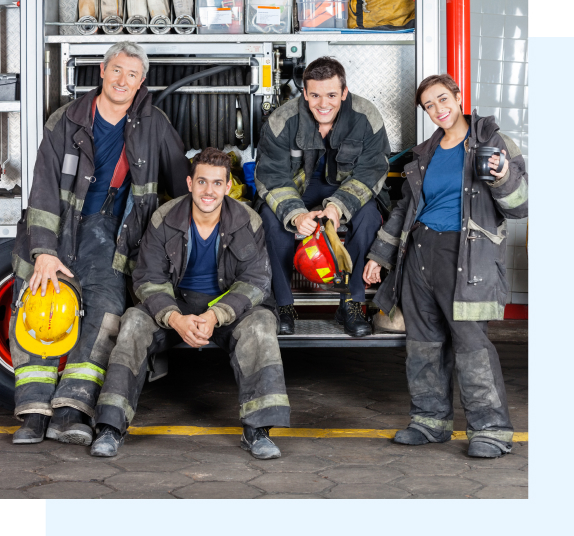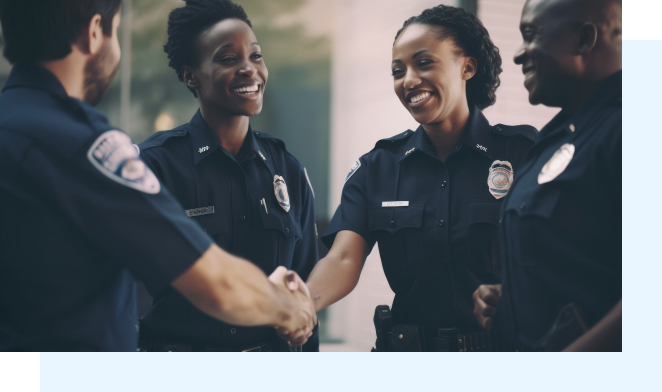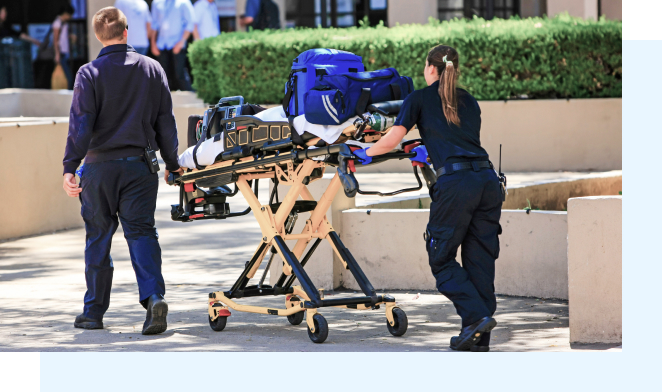
We have successfully combined forces with Worldwide Peer Support to launch a program for first responders in treatment at Bridges of Hope. Individuals who have served, or are currently serving, as first responders are able to complete our program with some added trauma-informed interventions and peer sessions. This program was piloted with a former client and the high praise for our staff, facility, and supports did not go unnoticed.
Warrior’s Pathway to Recovery
Over time, exposure to stressful situations can take a toll on First Responders’ mental and physical health. In some cases, post-traumatic stress disorder (PTSD) results, with symptoms such as: flashbacks, nightmares, recurring thoughts and emotional numbness.
First Responders are at risk to develop numerous physical and mental health issues due to the intensive nature of their work and the types of traumas and stress they witness. These individuals are also highly susceptible to develop a substance abuse disorder. They are often exposed to extreme amounts of perceived stress that can result in the development of a trauma- and stressor-related disorder

Addiction Amongst First Responders
Although heroic and essential to society’s health and safety, these duties are often emotionally and physically draining. Chronic exposure to life-threatening situations, devastation, and loss, coupled with working long hours (sometimes forty-eight-hour shifts) under abnormally stressful conditions, has a significant impact on one’s mental health.

Police Officers
However, first responders are some of the last people to seek mental health or addiction treatment. First responders are at an increased risk for post-traumatic stress disorder and other issues with mental health. The National Alliance on Mental Illness (NAMI) indicates as many as 24% of dispatchers and 35% of police officers struggle with PTSD.1

Paramedics and Firefighters
It is also estimated that as many as 50% of paramedics experience PTSD symptoms and up to 37% of firefighters meet the diagnostic criteria for PTSD. A recent study of professions most at risk for PTSD showed police officers, firefighters, and first responders or ambulance personnel as the second, third, and fourth most at risk out of a list of seven.
Addiction treatment for first responders is not all that different from others who struggle with mental health and substance use disorders. For most, addiction treatment includes therapy (individual and group) in either an inpatient or outpatient rehab setting.
Common therapy models include evidence-based programs such as cognitive-behavior therapy and dialectical behavior therapy, both explained in more detail below. In addition to these evidence-based therapeutic models, peer support groups such as 12-Step programs are also beneficial, especially when the groups consist of individuals from similar occupational fields.
The American Society for Addiction Medicine recommends that first responders seek addiction treatment programs that address their unique needs. As noted above, the daily environment in which first responders operate is vastly different than a nine to five office job or virtually any other type of career. Additionally, many first responders have access to the same drugs (or alcohol) they sought treatment to overcome. Consequently, relapse prevention education and aftercare treatment planning may be different for first responders than for other members of the general public.
Do You Have Questions?
Don’t hesitate to reach out!
Please give us a call now and we’d be happy walk you through our various treatment options as well as answer all of your questions.

We’re Here For You
Sometimes, talking over the phone is easier. We’re here to listen to your questions and help get you answers.
 Toll Free Call
Toll Free Call 100% Confidential
100% Confidential

 Verify Insurance
Verify Insurance